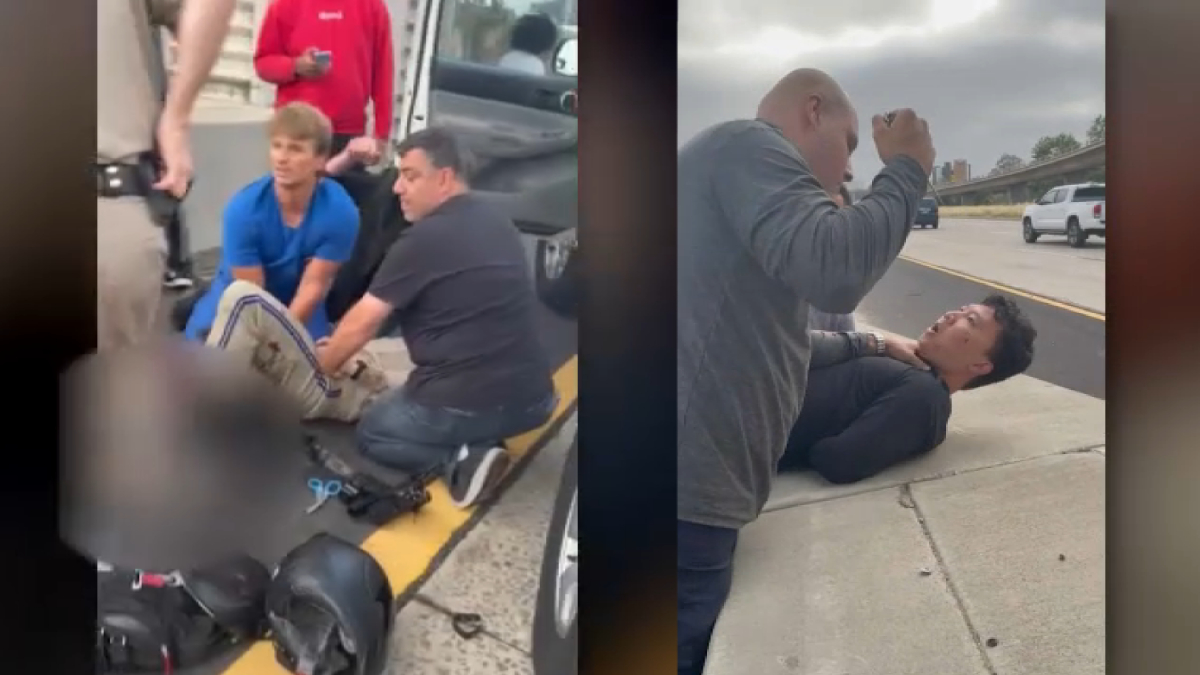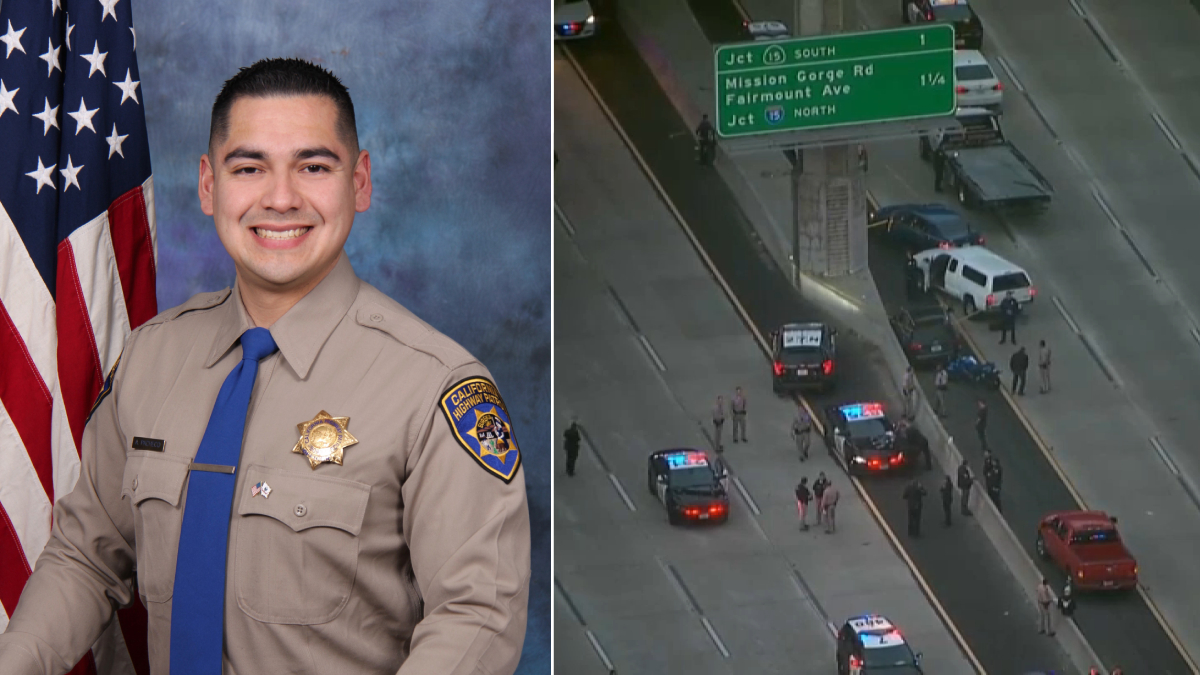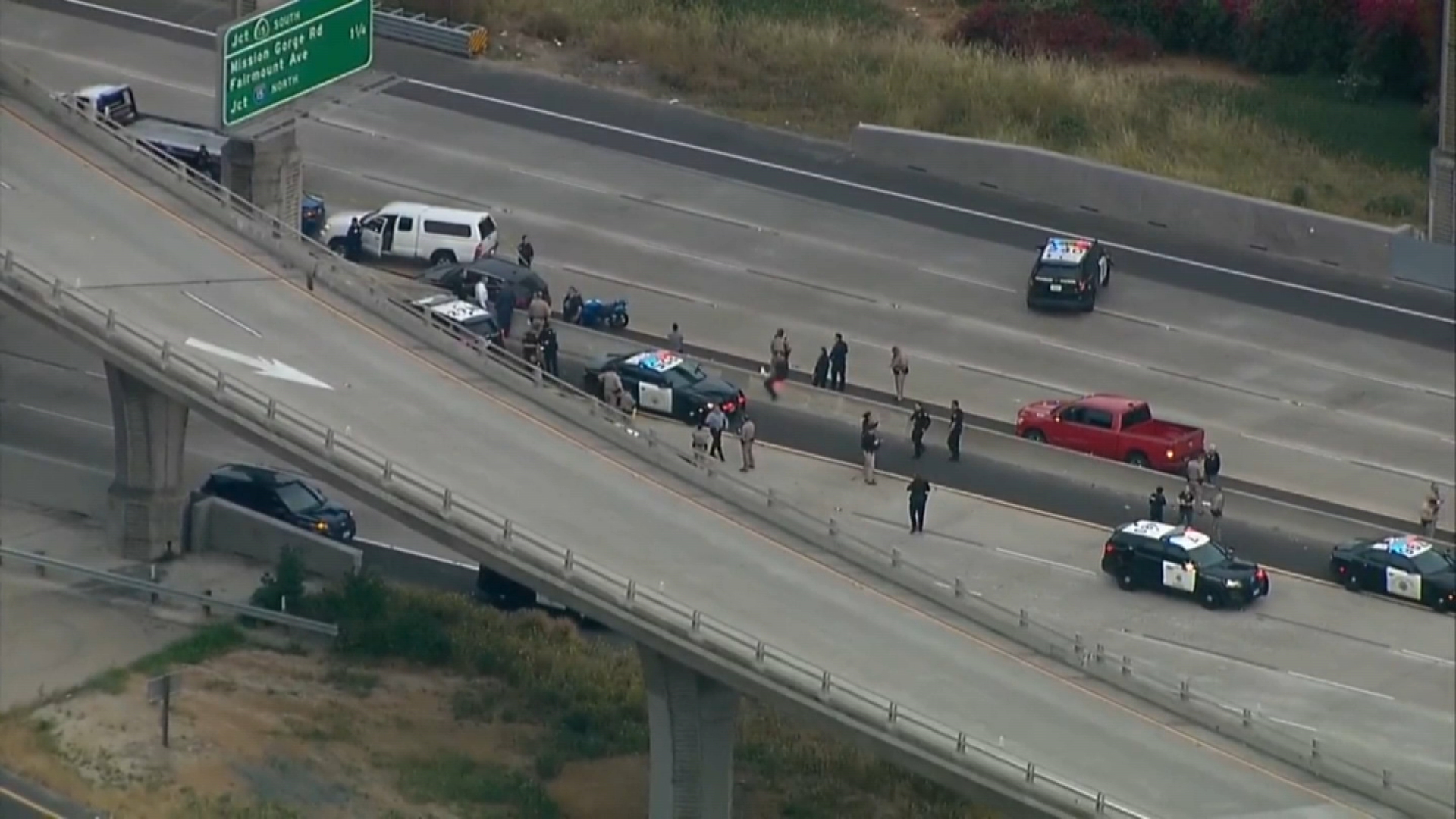Legal experts say the insanity plea is rare and even more rare to enter that plea at an arraignment.
To describe 25-year-old Yuhao Du’s actions as bizarre may be an understatement: Investigators say he was involved in a car crash on I-8 near the I-805 interchange two weeks ago, and when CHP officer Antonio Pacheco arrived to assist, Du allegedly attacked him. During the struggle, the officer’s gun was discharged into Pacheco’s leg.
An insanity plea, made so early in the process and before the defense can have Du privately evaluated, suggests to criminal defense attorney Marc Carlos that Du was diagnosed with a disorder of some sort before now.
Get San Diego local news, weather forecasts, sports and lifestyle stories to your inbox. Sign up for NBC San Diego newsletters.
“They would have to know something, because I can’t imagine lawyers doing an NGI plea this early,“ Carlos said.
Not guilty by reason of insanity — or "NGI," as Carlos calls it — is a difficult defense.
“You do not understand the consequences of your acts — think about it: That means you don’t know what you did and you don’t know why it’s wrong,“ Carlos said.
Carlos, who isn’t defending Du, said he has plenty of experience with psychologically based cases.
“If he has a history of mental illness, it supports the mental issue is, in fact, real and it is not made up,” Carlos said.
Outside the courtroom on Tuesday, Du’s attorney Anna Demidchik said her client is on medication but wouldn’t say for what.
"It was a difficult decision for us to make this plea, and we discussed it extensively with Mr. Du, but we believe it, under the circumstances, it’s the best way to go,” Demidchik said.
In an insanity-plea case, instead of reasonable doubt, the jury, as it does in a civil case, makes its determination on the preponderance of evidence, meaning more probable than not, according to Carlos.
The lawyer said both the defense and prosecution will likely each get at least two medical evaluations of Du.
“There is a scientific aspect to it, but most of it is interpretation by the professional, by the doctor," Carlos said. "In the end, that is what is going to carry the day,“ Carlos said.
A defendant's attorney can’t advise a client during those evaluations. Anything the defendant says, any admissions made, can be used against them, which is another reason why Carlos said defending an insanity plea can be an uphill battle.
Du's mother flew in from China after the incident. She said she plans to stay at least three months to help her son. Through his attorney, she said, she trusts the court process and offered condolences to the injured officer and his wife.




